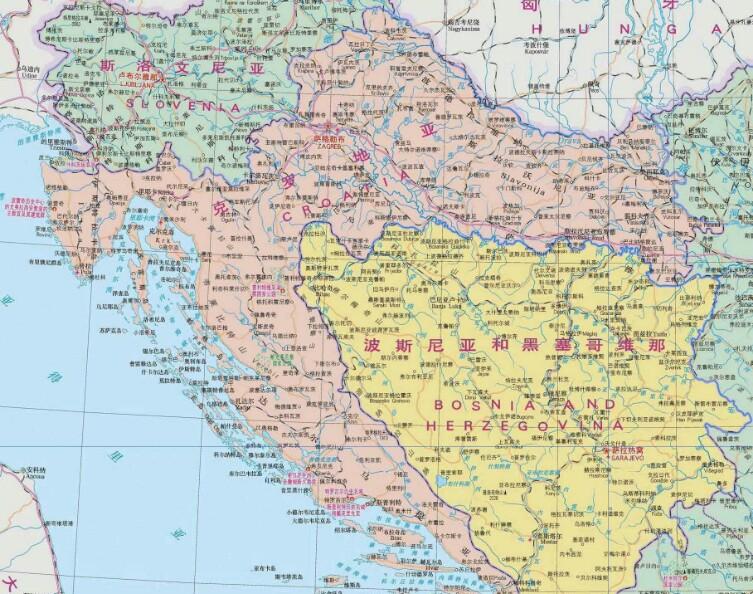Croatia is located on the southeastern edge of Central Europe, northwest of the Balkan Peninsula, on the east coast of the Adriatic Sea, across the Adriatic Sea from Italy, with its northern neighbors Slovenia and Hungary, and Serbia and Bosnia and Herzegovina to the east and south, with a total area of 56,594 square kilometers.

Topography
The southwest and south are the Adriatic coast, with numerous islands and tortuous coastlines, plateaus and mountains in the south-central and plains in the northeast. To the southwest is the Dinara Mountains, a multi-karst landform.
Climatic characteristics
The northern part of Croatia has a temperate continental climate with four distinct seasons and mild summers, with an average temperature of 18-22 °C in July, a cold winter with temperatures below 0 °C, a highland mountain climate in the central and south-central regions, and a Mediterranean climate on the southern and southwestern coasts.
capital
Zagreb, the capital of Croatia, is the political, economic and cultural center of Croatia, and the largest city in the country, located at the confluence of traffic on the Adriatic coast and Central Europe, is an ancient Central European city, with a population of about 792875 people.
natural resources
Rich in forest and hydropower resources, the national forest area is 2.689 million hectares, the forest coverage rate is 47%, in addition, there are oil, natural gas, aluminum and other resources.
Ethnicity of the population
Croatia has a total population of about 4.174 million, the main ethnic group is croats, the rest are Serbs, Bosniaks, Italians, Hungarians and other 22 ethnic minorities, the official language is Croatian, the main religion is Catholicism.
military
Croatia established its army in 1991, and on May 28, as the founding day of the army, the system of voluntary military service was introduced, and the total number of the army was 16,019, of which 14,506 were active and 1,513 were civilian.
festival
New Year January 1
Labor Day may 1
Founding Day May 28
Victory Day of the Anti-Fascist War on 22 June
National Day June 25
Thanksgiving Day August 5
world heritage
Diocletian's Palace in the historic city of Split, Croatia, built in 305 AD, covers an area of 30,000 square meters, the palace wall is 17-21 meters high and 2 meters wide, the main entrance 6 marble columns are transported from the Middle East, magnificent, in 1979, Diocletian's Palace was listed as a World Heritage Site.
Food culture
Croatian cuisine not only has a pre-Slavic style, but is also closely associated with many famous gastronomic schools in Hungary, Vienna and Turkey, its dishes are mainly meat products, freshwater fish and vegetables, the main dishes are, small potato goulash, Croatian fish soup, Croatian cuttlefish rice, turkey with grilled noodles, etc.